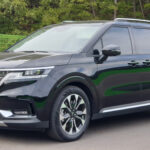Table of Contents
Weber barbeque grills are one of the leading grills available in today’s market. It’s a 1952 established U.S. brand that finds its name in every American household. The iconic Weber kettle grill was born in the 1950s when George Stephen, a Weber Brothers Metal Works salesman, invented the lid grill while he was filling up orders for buoys. He used a buoy, and with a little improvisation, he introduced the Weber kettle grill. Weber has a wide gamut of products today, from gas to electric to charcoal grills. Their products have industry standard prices and include both budgeted range and expensive, smart models. All the products are manufactured within the U.S. and undergo high-standard quality checks before dispatch.
Which is the best kind of barbeque grill to look for?
Now, this is certainly not a one-size-fits-all solution. The Weber Original Kettle (available in 18-inch, 22-inch, and 26-inch) model is the ubiquitous Stephen’s invention with minor upgrades and is hailed as a budgeted buy for charcoal grill buyers. When choosing a barbecue grill, most people think about charcoal grills. This is because of 2 main reasons—the budgeted price and the charbroiled taste of the barbecued meats and veggies. Today, you’ll find different grills and even subtypes under each of them. A Weber gas grill will give you more convenience than a charcoal grill with more options and reducing risks, such as flare-ups, in some models like the Spirit and Genesis series. Let’s take a wider perspective on the pros and cons of each kind of grill:
For the classic charbroiled taste
Charcoal grills are the best for getting the woody or charbroiled flavor in barbequed food. Honestly, it’s hard to replace the unique taste with other grills. The gas grills give a smoked flavor to it, and the barbeque doesn’t taste bland. However, this is not possible for electric grills.
-
For outdoor, barbeque picnics and the need for portability
Charcoal grills again score on this one against gas and electric grills. Charcoal grills like the Weber charcoal grill feature portability along with other conveniences. Gas grills can be portable, but it needs to be fuelled by a propane tank. However, charcoal grills are more convenient as they are smaller in size, and for outdoor barbecue days, they can be easily used as the smoke produced is not an issue. Unless you’re traveling in a condo or have enough external power backup to charge an electric grill, they are not the best options for a portable grill. The Weber gas grill models come with wheels; e.g., the Spirit model has all-terrain wheels. If you choose a gas grill with portability, you’ll also need to make sure that you connect it to a gas supply.
-
For lack of time and space
For barbeque weekends, you can use the terrace, and your lawn or travel somewhere, like to a park, to enjoy the barbecue. In case you don’t have outdoor options and need a quick grilling option, then electric grills are the best choice. Charcoal grills take a lot of time to heat up, while gas grills take less time. Electric grills take very less time compared to the rest two and are the best options for indoor grilling. They do not produce smoke or dangerous flare-ups like charcoal or gas grills. So, it’s an easy and quick option for apartments, indoor evening barbecues, and closed spaces.
-
For budget
For the least initial investment, charcoal grills are the top choice. This is followed by electric grills. Gas grills are the most expensive, but they come with a lot more features than charcoal and electric grills. Electric grills are a more reasonable choice for long-term operating costs as charcoal and gas are expensive and require refueling costs.
-
Health and safety concerns
The health concerns with charcoal grills are the two commonly found carcinogens in open-cooked, high-flame meats—HCAs and PAHs. So barbequing on charcoal grills has been linked to cancer. Secondly, the smoke emitted from the burning charcoal is a menace as an environmental pollutant. Grilling on gas doesn’t cook at such high temperatures and emits less smoke, so it’s safer than charcoal grills. The safest option is an electric grill. Another safety concern is the flare-up produced from both charcoal and gas grills.
They should only be used in outdoor spaces with enough ventilation. In residential spaces, they should be kept away from wood or other inflammable fixtures as they can cause a fire outbreak. Gas grills give off dangerous flare-ups. So the safety option should be kept in mind. Even though the Weber gas grill models use the brand’s GS4 grilling system with even heat distribution and flavorizer bars that catch grease to prevent flare-ups, it’s safest to be used in outdoor conditions. For health and safety concerns, a Weber electric grill might be the best choice, like a model from the Q-Series or the Pulse. You’ll get the most color choices in the Q-series than any other Weber grills.
Conclusion
Weber grills are hands-down top-class barbecue grills. However, which one is the best? It all depends on what you’re looking for and how much you can shell out. For basic outdoor barbecue weekends, you can go for the classic Weber Kettle Grill, its premium versions, and even the Smokey Joe or the Traveller Gas Grill. If you want to invest in an electric grill, look up the Q-Series models or the Pulse. The Spirit, Genesis (an upgrade on Spirit), and the Summit are Weber’s gas grill series. Even the Weber Summit Kamado, a charcoal grill, can give tough competition in terms of convenience and features to other gas and electric grills.
For more articles click here – https://booktruestorys.com/

